Her songs became lifelines. Her stages reshaped the music industry. In an intimate conversation with IN Magazine, Sarah McLachlan speaks on the legacy of Lilith, allyship, and what comes next…
By Elio Iannacci
Photo by: Kharen Hill
I Won’t Fear Love.
That small-but-mighty lyric – lifted from the title song on Sarah McLachlan’s third album, Fumbling Towards Ecstasy – has echoed for decades as a quiet anthem for 2SLGBTQI+ communities. Only four words, but their resonance is seismic. Released in 1993, a time when the HIV/AIDS epidemic was nearing its peak and love itself felt fraught, the song dared to stand for intimacy without shame, and affection without apology. When closeness felt dangerous and desire was weaponized, McLachlan’s voice arrived just in time, like a balm.
As the Dallas Voice (a Texan LGBTQ+ newspaper) observed in 2014, although McLachlan wrote “Fumbling” about a straight relationship, it struck a deep chord with queer listeners – especially those who were coming out or wrestling with their identity. It gave space to explore “issues of self-actualization” and agonizing doubt. For many of us, the song’s chorus was recuperative, unflinching and defiant, all at once:
And if I shed a tear I won’t cage it / I won’t fear love
And if I feel a rage I won’t deny it / I won’t fear love
That bond – first forged in those early, aching years – marked the beginning of a long and meaningful relationship between McLachlan and the queer community. But she didn’t stop at being a vessel for catharsis. Over the next three decades, the Halifax.-born singer-songwriter, advocate and mother of two would prove she’s more than a haunting vocalist or clairvoyant lyricist: she’s a movement maker. With 10 studio albums to her name, McLachlan has sold more than 40 million records worldwide, earning three Grammy Awards and a dozen Junos along the way. But some of her most influential work has happened off the charts.
Lilith Fair, which was dismissed by bro-centric rock media – who infamously dubbed it “Lesbopalooza,” with Rolling Stone using terms like “estrogen fest” and “feminazis” to describe the scene – was nonetheless deeply embraced by women and LGBTQ+ audiences. Sarah McLachlan made history when she helped launch the radical-for-its-time festival, which centred entirely on women artists.
Now, a soon-to-be-released documentary directed by Ally Pankiw revisits the festival’s legacy and its far-reaching ripple effects. Premiering at the Toronto International Film Festival (TIFF) this September, the film features interviews with Brandi Carlile, Indigo Girls, Olivia Rodrigo, Erykah Badu and other iconic names. It traces Lilith Fair’s three-summer, 54-city, 134-date run, which raised more than $7 million for various charities. The documentary will air on CBC and CBC Gem on September 17 and is produced by an all-star team, including Christian Piovesan and Dan Levy.
Beyond the big and small screen, McLachlan is also preparing to release her 10th studio album, Better Broken, and hit the road for a solo tour.
Before hitting the stage yet again, McLachlan sat down with Elio Iannacci for an hour-long conversation about her commitment to queer lives, the labour of building space for equality in music, and the next chapter of her ever-expanding creative journey.
How were you able to update your sound while honouring your past musical legacy?
Young people. Early on, I was thinking this might be my last record and I kind of owed it to myself to step out of my comfort zone. I’ve worked with Pierre Marchand [her long-time producer?] for 30-plus years and I adore him, but I thought I just need to stretch a little bit. I met with Tony [Berg, the producer of her new album?], and had this instant connection with him. I played the song ‘Gravity’ for him once, just on the piano. He sat down at the piano, played the entire thing back to me and then said, ‘What about this chord here?’ He made the song better in minutes. He and his team have this wealth of musicality that just blows my mind.
A standout track called ‘Long Way Home’ seems to address why it took 11 years to create this album, with the lyrics ‘taking the long road home, tried to pay my debts.’ What are those long-standing debts?
I didn’t get to this point in my life unscathed. I’ve had a crazy amazing, joyful, painful, wonderful life. I had my heart broken a number of times. I’ve lost both my parents to long painful battles with cancer. I’ve had some terrible breakups that were partly self-induced because I stayed too long. For me, the reclamation of self is a really big theme that is prevalent on this album. Just rediscovering who I am. What’s my place in the world now as a woman, as a mother, as a songwriter? What do I have to say? This includes all these moments of panic of like, ‘I’m a middle-aged white woman of privilege, nobody wants to hear from me.’ I think the act of giving back is essential to me since I made it this far.
Barbra Streisand has said that rage is a motivator for some of her work. Is this true for you?
Rage has definitely been a motivator. That’s changed. I don’t like feeling rage. I feel out of control when I’m feeling rage. Letting go of the things that you can’t control is a choice. You can choose to step away from it and go, ‘Okay, this is unhealthy for me. I’m going to take a different tack.’
Stevie Nicks once told you that you reminded her of Janis Joplin. Do you feel like you give off Joplin vibes?
That was a kind thing for her to say. Janis was definitely a wild child. She certainly did things her own way, and I’m pretty pig-headed and stubborn, and I do things my own way. Especially if someone tells me I can’t do something, well, that just makes me want to do it 10 times more. There have been a few times when women, like Stevie, have been mentors to me. People like Emmylou Harris have come at pivotal moments and reaffirmed and reminded me of my path. I’ve had a pretty healthy dose of imposter syndrome most of my life, probably because of the way I was raised. That self-loathing in some ways has served me well because it’s propelled me to be better.
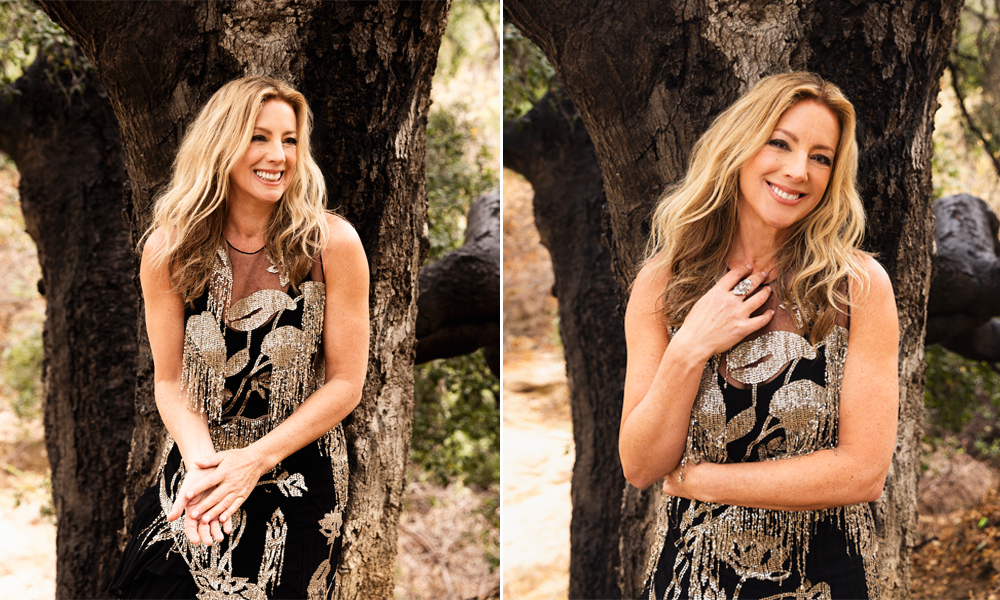
One of your news songs, ‘One in A Long Line,’ speaks to the relationship you have with your older daughter. In hits like ‘Into The Fire,’ you explored your relationship with your mother. How different is writing a song regarding both experiences?
In ‘One In A Long Line,’ I want to impart a sense of strength and self-worth to my daughters. I think I’ve done a pretty good job of that. I want to be the antithesis of my mother, who had a lot of challenges in her life and was not a good mother at all. But in some ways, the lack of mothering taught me how to show up. ‘One In A Long Line’ is about the idea that we are standing on the shoulders of all these women who came before us, who suffered and struggled to win the rights that we are now watching being eroded away from us once again. And it’s like, ‘How the hell did this happen?’ Now is not the time to be complacent. You want to talk about rage? I mean, for me, I feel rage when I sing that song. It’s almost like I need a couple minutes to come down after because I am so angry.
What did you want to make sure you did not raise your daughters with?
Well, parenting with shame, parenting with fear, doing anything leading with fear or shame. I created a community of like-minded people. We’re very free-thinking, very liberal-minded. And, for me, it was a conscious effort and decision to do the opposite. My mother led by fear and kind of, ‘Why would you even bother trying? You’ll fail. You’re not good enough. Don’t go thinking anything special.’ Typical Scottish mentality. It was very sexist. I had two older brothers who were given all sorts of opportunities that I was not given because I was a girl. The inherent unfairness of that was very obvious to me from an early age, and when thinking about raising my girls, I wanted them to have self-worth, to understand that they had a voice and they should use it. I don’t want them to be afraid to speak out and ask questions.
Researchers have found that many of the AI generators and chatbots demonstrate a right-wing bias. In some ways, creating music with your own voice, without so much dependency on AI, is now becoming a radical act. Does it feel that way?
AI is baffling and terrifying to me. I don’t see it as a radical act because it’s innately such a huge part of me – it just feels completely normal and natural. It feels shocking that it’s radical, and maybe it is. If that is the case, then I need to do this 10 times louder.
Lilith Fair was such a platform for many people to understand feminism in a very different context than what was created in schools or in the media. What’s your perspective on how some use feminism as a weapon against transgender people, particularly in light of figures like J.K. Rowling?
I think it’s very strange. I can’t speak to her motives. What I know is, that is not what I believe. I’ve always thought there is a place for everybody. And I’m very much live and let live. If you’re not hurting me, why would I care what you do? It’s your path. And you should get to have an open avenue for your path, as should I. I want everybody to have equal opportunity. The way I choose to go about it is less with anger or a fist, and more with, how about we find ways to build bridges? Stay open and stay curious and try and understand it as opposed to just put up a brick wall. We all want love and acceptance. I am just still utterly baffled by the Christian right and the hypocrisy of all of this. Why can’t we just figure this out together?
In the Lilith Fair documentary, Brandi Carlisle remarked on how Lilith Fair became an intersection of queer and women’s rights. Did you experience that as well?
Oh yeah. It was happening – that connection between the two – in very natural ways backstage and on stage. It was about creating a safe space where everybody could show up as they were, as they wanted to be, and they were accepted as that. That was such an antithesis of what was going on in certainly live concerts like Lollapalooza, H.O.R.D.E. [Horizons of Rock Developing Everywhere], [where] there was a real male anger and using music in this sort of violent and macho way. I didn’t attend – it was terrifying for me. I didn’t want to get groped or raped or any of that stuff. For me, and for all the women and all the people that participated in Lilith, we were the polar opposite of that energy. There was a natural intersection of openness because the artists who were on the Lilith lineup are some of the most open-minded liberal people there are. We recognized – through conversations about our lives, our performances, our material – that we need each other to progress.
Do you see that kind of thinking in the music industry today?
Well, every system in the world that we live in right now, for the most part, has been created by men, for men. And if we want to do something different, it involves people in power who have a platform to help build that. Lilith was an example of that. Brandi doing what Brandi does – bringing women together on stage regularly – is an example of that. Taylor Swift having all women open up for her is another example. However, if we continue, as women, to fight each other for this narrow sliver of pie that men have allowed us to have, for instance, we’re never going to get anywhere. I’ve always had the idea that if I have more than enough, I want to share it. I want to bring other women forward and put them in the spotlight and say, ‘Look, we can support each other and lift each other up.’ That is so much more powerful…than tearing each other down.
Is there anything you’ve learned from having queer artists on the Lilith stage?
For me, the LGBTQ community has opened up my world. They have told me that difference creates a much more interesting, nuanced world. They are a huge reminder that we can show up for each other. Having people like Tegan and Sarah and the Indigo Girls perform was more exciting and alluring and interesting and colourful than staying in one cookie-cutter lane.
Emily and Amy from the Indigo Girls made a big impact on me early on in the first year of Lilith. I really wanted to play with the other artists but I was shy to ask, and they were so encouraging and they said, ‘We’ll ask!’ They just got the ball rolling, and I’m so grateful to them for that, because singing with them and so many other artists became the highlight of the tour. I also have huge love and respect for Brandi Carlile, for all she’s done to support and elevate other women and queer artists by creating Girls Just Wanna Weekend, her music festival, and creating amazing events for us as a community of artists to come together to support and champion Joni Mitchell.
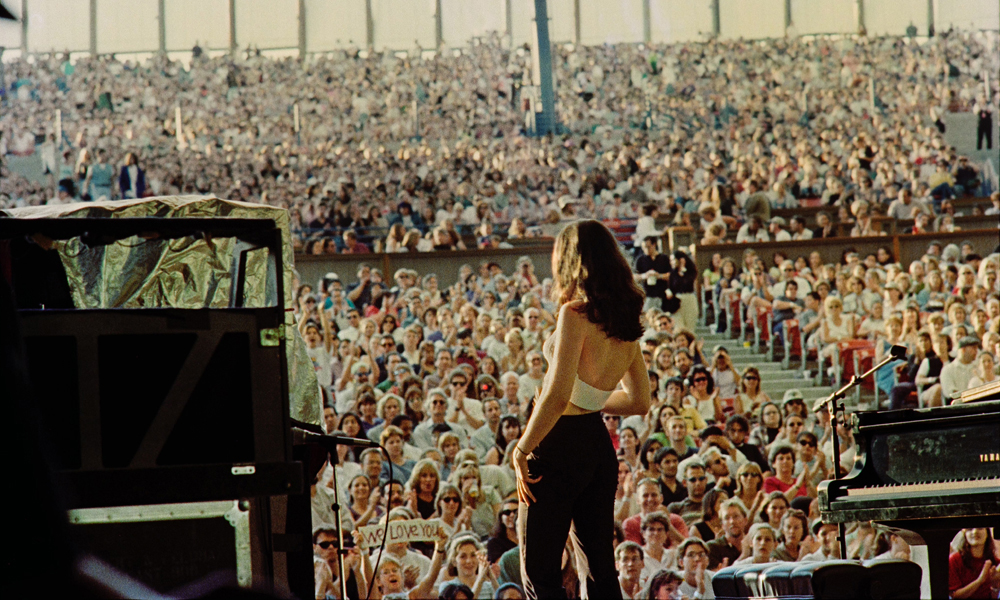
Looking back at some monumental songs like ‘Fear’ and ‘Fumbling Towards Ecstasy,’ do you see why the LGBTQ+ community was so drawn to them, particularly during the HIV/AIDS epidemic?
It makes perfect sense. I write from a perspective of love is love is love, and love shows up in all sorts of ways. So does its challenges. These are very basic human feelings that all of us share – even if our stories are different. The fear of being vulnerable, of opening yourself up and allowing someone else in during a time when it’s nearly impossible to do that, is understandable. That’s what it is to be human. When I hear of people finding comfort during times of challenge or loss, it reminds me to recognize that as a woman, as a mother, and as an advocate and humanitarian, I need to keep speaking up.
What did you discover from working with the LGBTQ+ community during your involvement with HIV/AIDS charities?
When I worked with Lifebeat [a leading non-profit based in England that is dedicated to educating youth about HIV/AIDS prevention] in the early ’90s, I saw how the community had to deal with the stigma and the fear around AIDS. I saw that these were people who were suffering and dying and losing their loved ones. Education is still so imperative. There was so much misinformation back then. It felt like I had to do something because everywhere I turned was a sad reminder of loss. We had to fight against losing more.
Yet with all your strength, the theme of surrender comes up in a song called ‘If This Is The End’ and past songs ‘Surrender and Certainty’ and ‘Sweet Surrender.’ What fascinates you about the concept of surrender?
There’s a bit of Buddhism in those lyrics. When you continue to bang your head against a brick wall and there is no shifting or changing, it’s the definition of insanity. You have to step back and say, ‘I need to find a different path for my own safety and sanity.’ It can be a big challenge standing up for yourself and knowing when to let go because those things often oppose each other. For me, surrender is choosing to value myself, but also just to give in to the things that I can’t change and let them be.
‘Reminds Me,’ your new duet with Katie Gavin from MUNA, is one of the rare romantic songs out there sung between two women. Why MUNA? What space did that collaboration open up for you?
I met Katie when she was opening with MUNA for Taylor Swift. I was just in love with her voice, and she’s such a beautiful writer. In this climate, it would’ve been an obvious choice for me to find a guy to sing that with me. Our duet will be seen as radical, but it was a great opportunity for me to be an advocate and to be an ally and to remind the world at large that love shows up in all sorts of ways. And this is a wonderful example of that. There’s this sort of higher social context to the song that I love.
In another new song, ‘The Last to Go,’ you sing: ‘the cage I could not see.’ What, to you, is an invisible cage?
Being a product of my mother and of society. I was thinking about what I gave up in myself to please men for so long when I wrote that song. I watched that with my mother too. She had no other choice but to stay in a marriage that was miserable because she had no friends or job. Even in the ’80s, you were kind of a pariah if you got divorced. Those are some of the embarrassing patterns that I found myself reliving. I would think, ‘Oh wow, you really haven’t stepped that far out of the mould.’ So it’s about breaking the patterns of that self-loathing and changing the narrative about your own life.
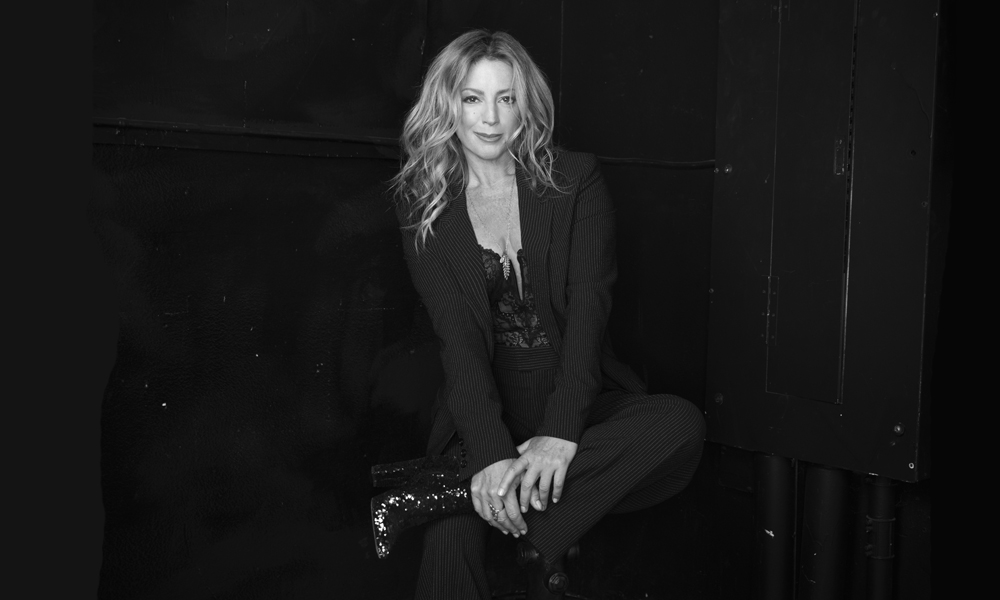
I was watching old footage of you answering questions from media during Lilith’s tours. How did you maintain your composure during press conferences when journalists used sexist or homophobic language about Lilith Fair?
Now, having much more confidence, I would be able to also have clever things to say. Things like ‘Your issues with this sound like it’s got a lot more to do with you than anything else.’ But I was raised a good Canadian girl who keeps her mouth shut and doesn’t challenge people. I thought, I just kind of have to put up with it. This was very much how women got through, and still get through. Put up with a lot. I just didn’t know how to answer it other than kind of ignore it and repeat what I truly felt: ‘You’re missing out on this wonderful opportunity to see what the world can be like when everybody chooses acceptance and chooses to not tear somebody else down.’
Sinéad O’Connor said that singing with you and being part of Lilith felt healing. Did you witness how it healed her?
Well, first of all, I was a massive fan of Sinéad. I wanted to mother her. I wanted to be a sister to her because I just felt like she was so alone in the industry, and she was so beat upon and so crucified in so many ways by speaking out and being her authentic self. I saw that Lilith’s community, and that space that was created, made her feel really safe. I loved seeing another side of her because she always seemed quite serious. I’m the same way. A lot of people listen to my music and they think I’m in the attic with red wine reading Sylvia Plath at two o’clock in the morning with candles going. I’m actually a really happy person. I was deeply saddened when I heard she died. I should have stayed more connected. I should have done more. Getting to sing with one of the most important voices of the time was absolutely so powerful.
How do you see your role as an artist having changed with today’s political climate?
I have a platform and I recognize the value of being an ally and to continuing to speak out about the challenges that people are facing. I want to show people that when you stay open and curious, that actually feels better for the greater world. We have to continue to find commonality…even during this mess. I’m doing that through my music, through spreading inclusivity and the joy of connection to all and for all. For me, music is medicine. I’m hoping this will be as restorative for those who listen to it as it was for me to make.
ELIO IANNACCI is an award-winning writer, poet and a long-time arts reporter for The Globe and Mail. He has contributed to 80 publications worldwide, including Vogue Italia, The Hollywood Reporter, Maclean’s, The Toronto Star and Sotheby’s Insight magazine. His master’s thesis, Queer-Diva Collaboration in 20th Century Popular Music, was nominated for a Governor General’s Gold Medal.

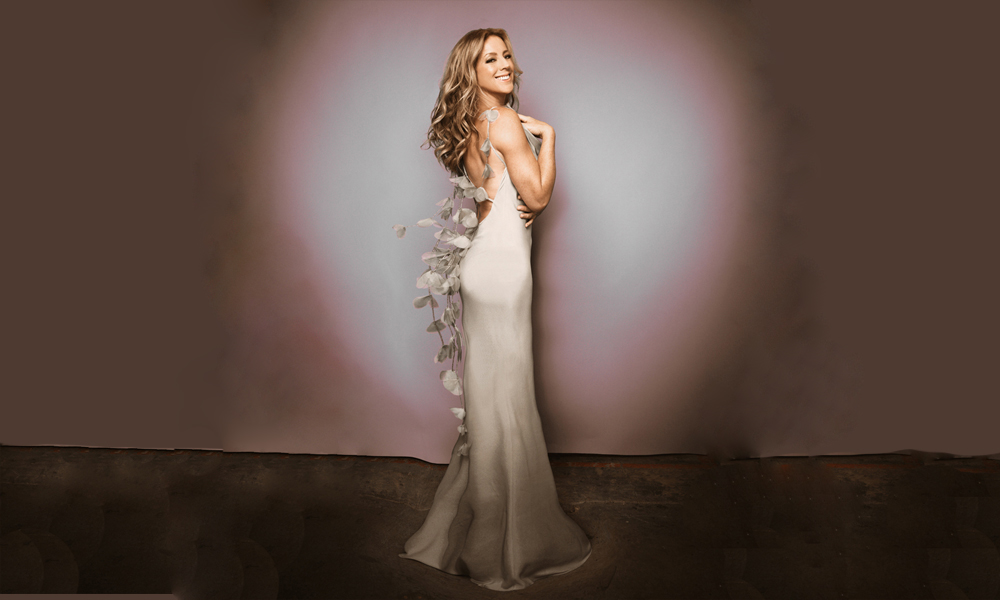

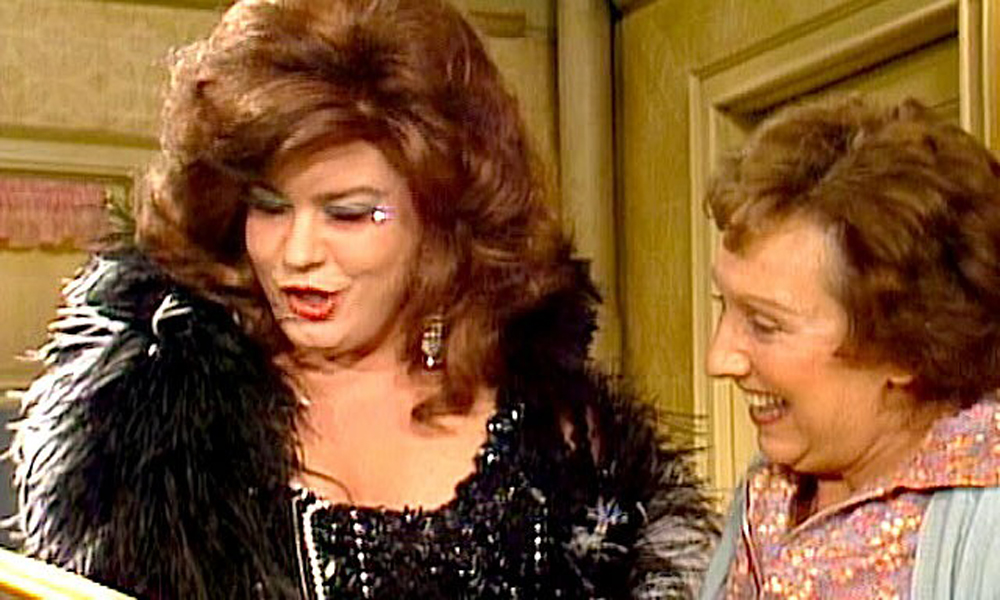
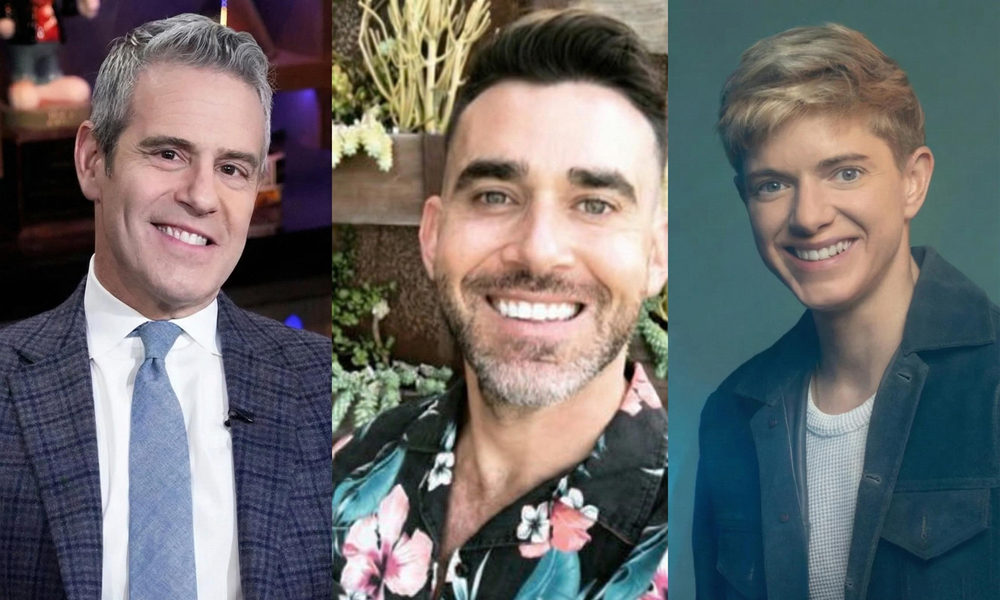
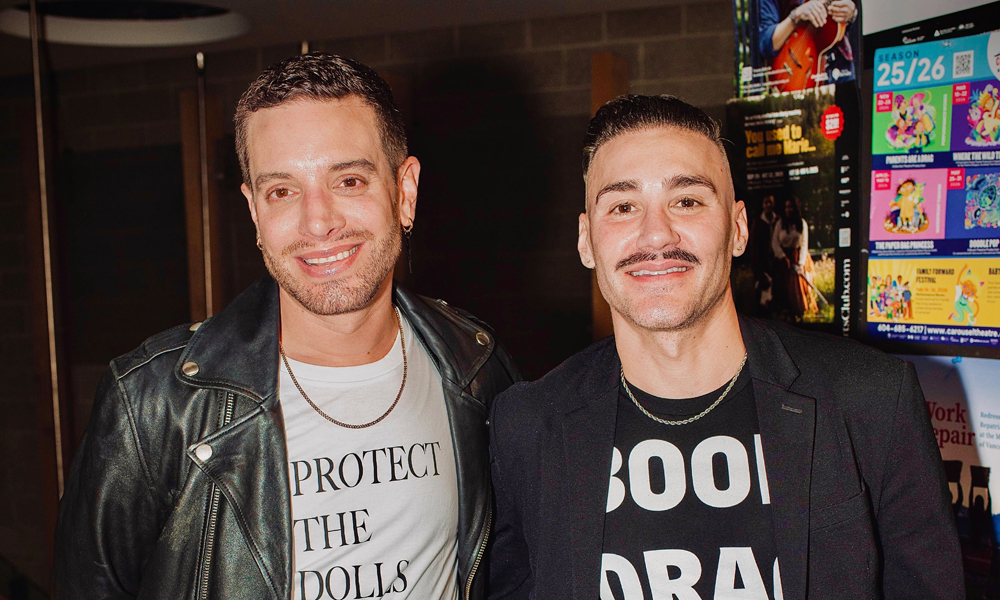
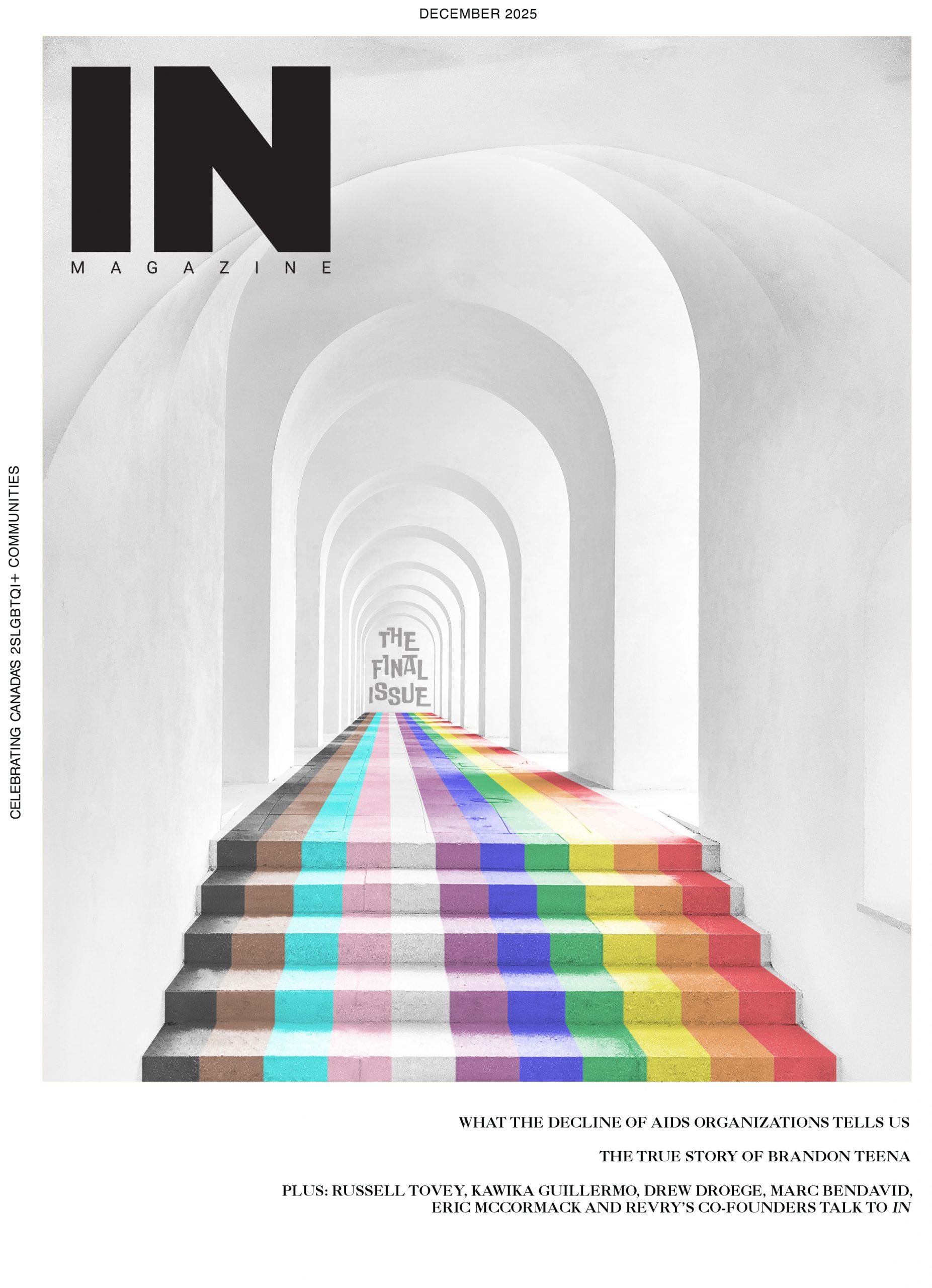
POST A COMMENT